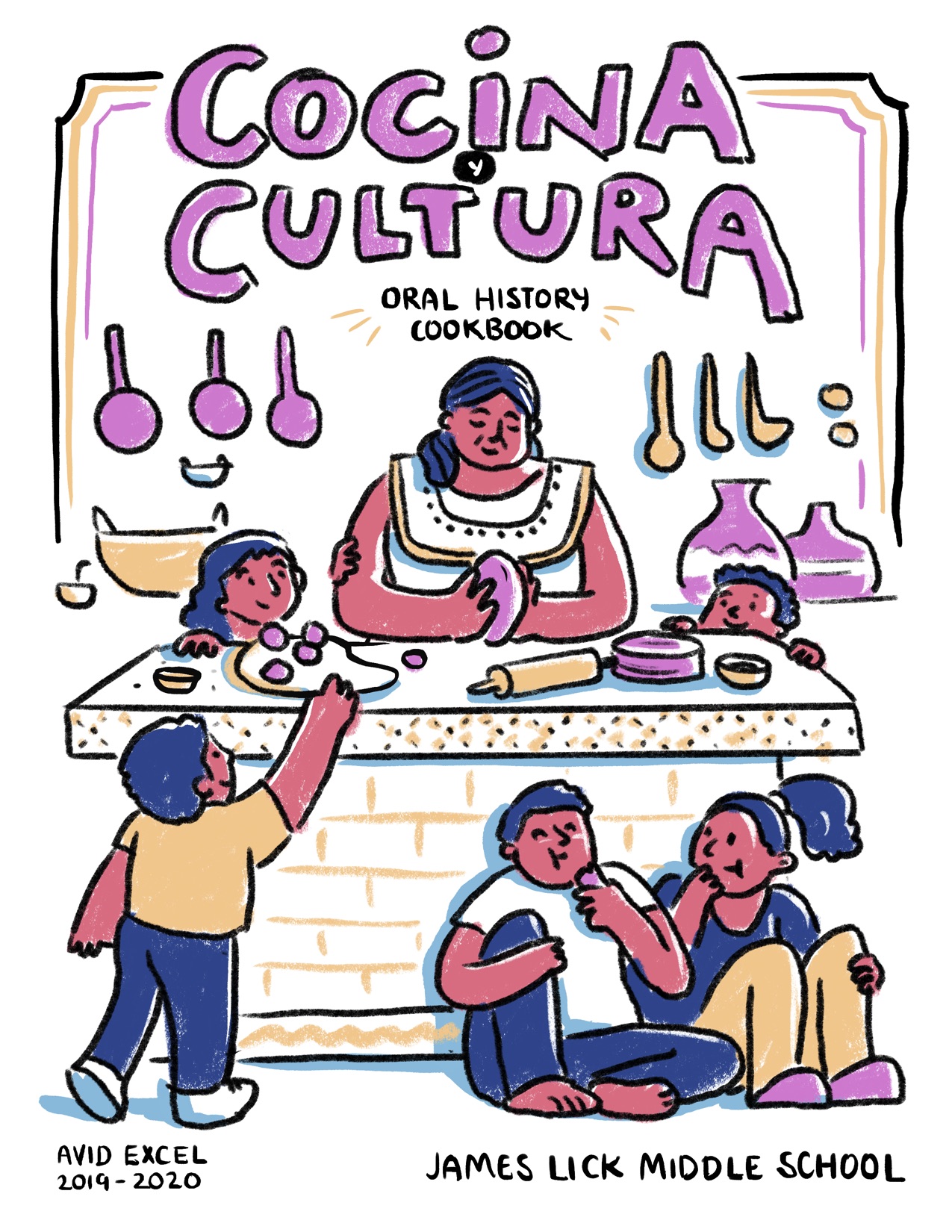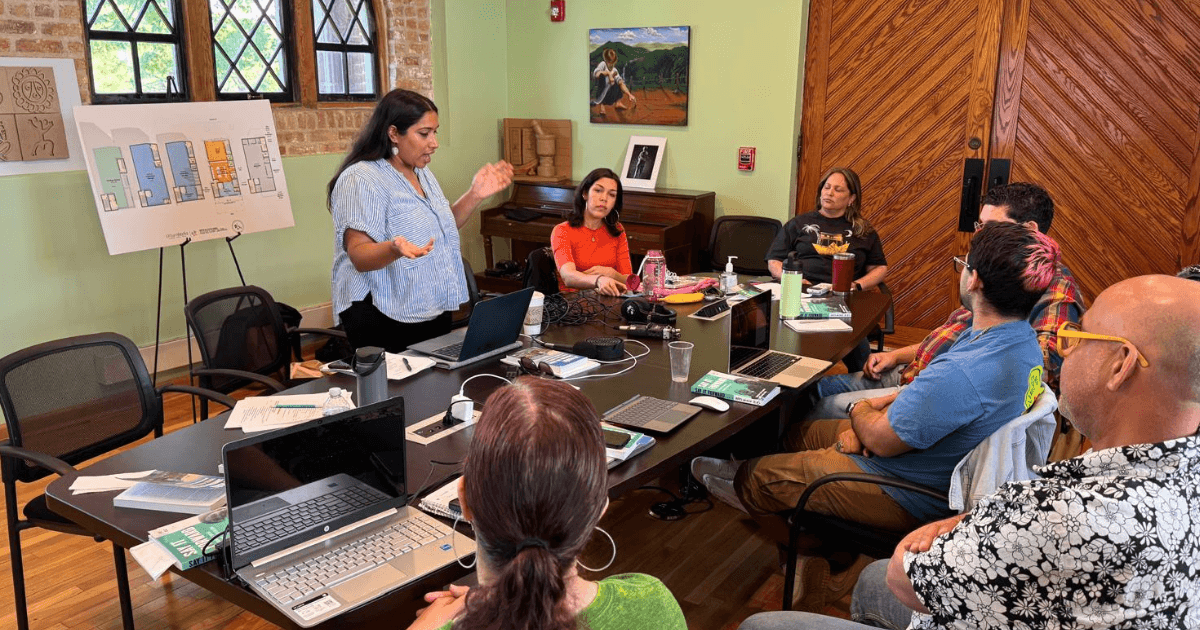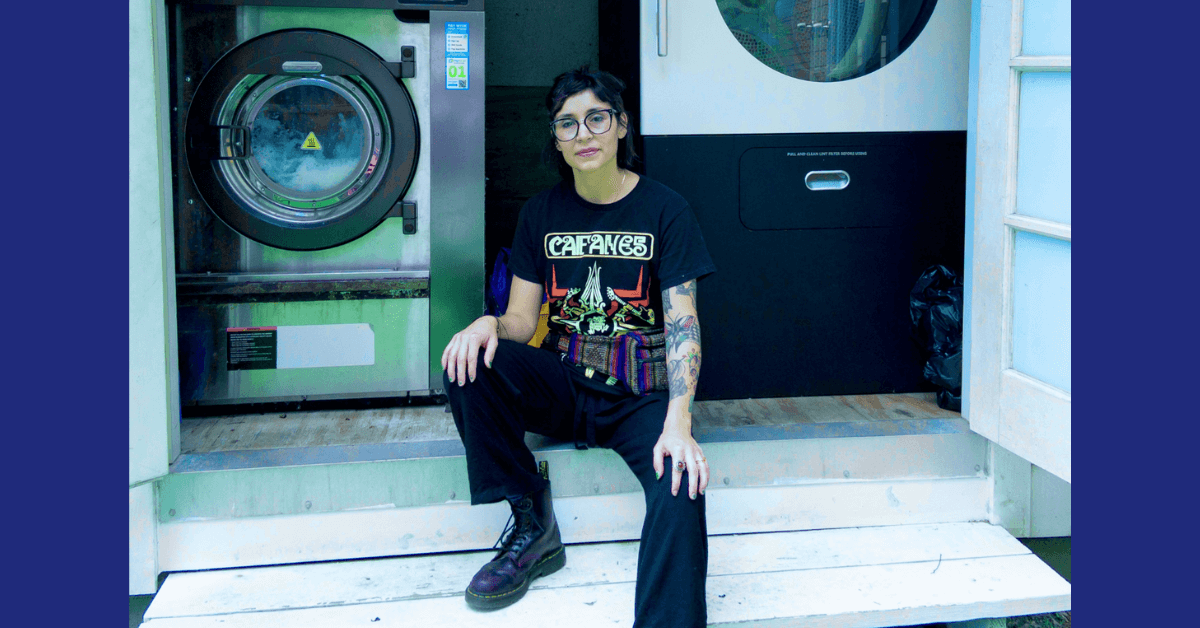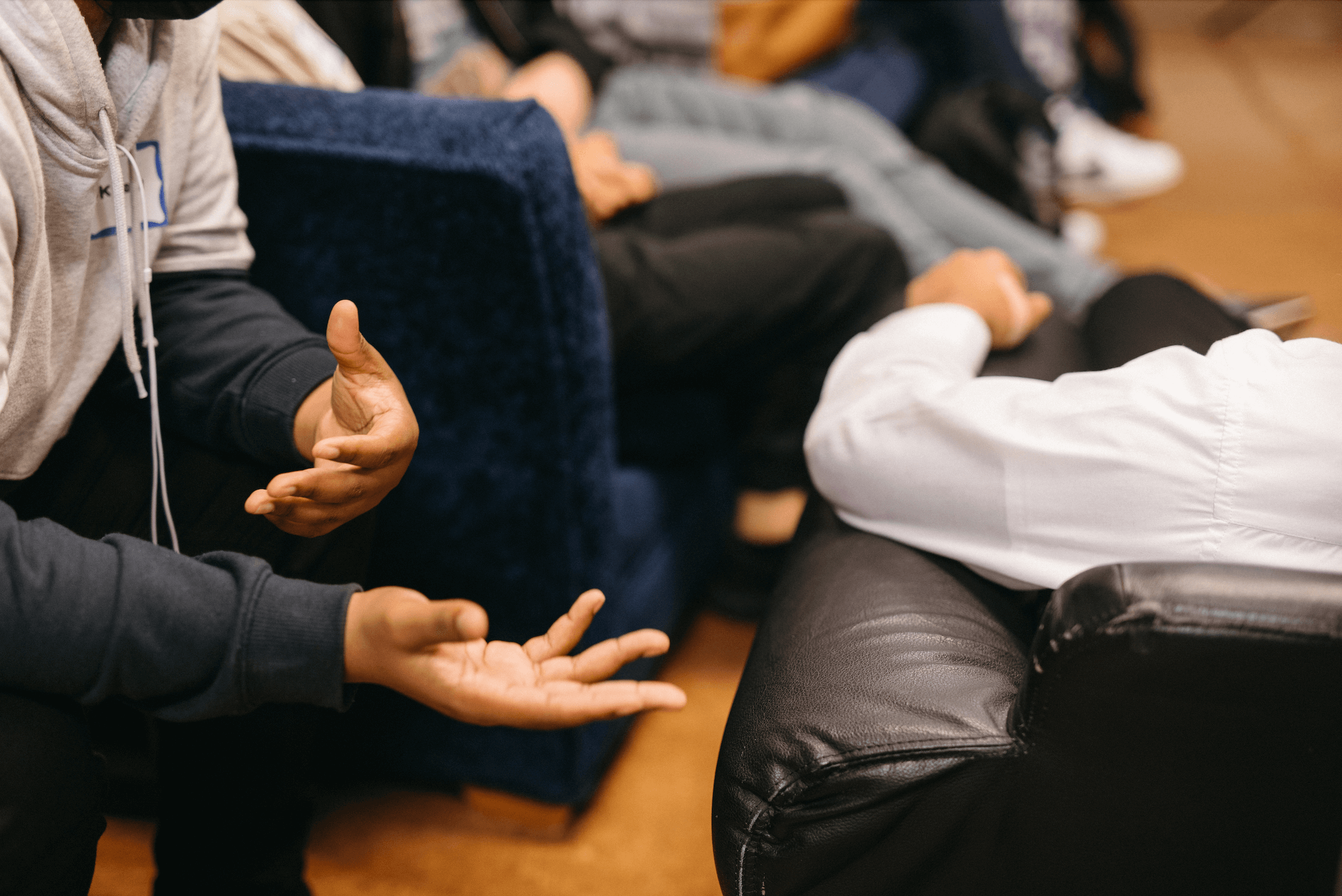
Voice of Witness has an ongoing consultancy with the San Francisco Unified School District (SFUSD), providing professional development to middle and high school teachers and librarians. VOW’s trainings offer oral history and personal narrative workshops centered around increasing student visibility and voice, as well as connecting oral history projects to district standards for writing and communication skills.
Oral history is a useful tool for all students, and particularly for English Language Learners (ELLs), as it incorporates literacy, speaking and listening, culturally relevant content, and a participatory vision of history. Download our oral history cookbook guide here.
Through the SFUSD partnership and Germanacos Fellowship for Sharing History, VOW supported a project with James Lick Middle School focused on food and community. Veronica Galante’s AVID Excel class—long-term English Language Learners—interviewed relatives and community members about a meaningful recipe, prepared a story about the narrator, then brought it all together in a cookbook and an oral presentation in class. The resulting cookbook contained the stories and recipes of people from across Central America and the United States, as well as narratives about culture, identity, and family.
VOW’s Education Specialist Erin Vong had a chance to sit down with teacher Veronica Galante and librarian Nathalie Hrizi to hear their reflections on the project, below. Veronica and Nathalie are both Voice of Witness Germanacos Fellows, who receive specialized support to explore groundbreaking new projects and push the boundaries of oral history-based education.
Q: How did you come up with the idea for the cookbook?
VERONICA: We went to a professional development training with Voice of Witness and knew we wanted to do something with oral histories.
NATHALIE: We were thinking, how do we get these kids engaged? So, starting with culture and their own experiences was our goal. The cookbook came out when we started talking about what the public product should be, how we could bring interviews with adults in the community to other people.
VERONICA: The engagement piece was the food. The kids love food, they love talking about it.
Q: How did students respond to the project?
VERONICA: There were a lot of “why”s!
NATHALIE: One student in particular, Joaquin, he said, “This is an AVID class! We’re supposed to be getting ready for our English test! Why are we doing this?” So I said, “Well, you need to learn to read, to write, to speak, and to listen for your test, right?” And he was like, “Yes, yes, yes, yes,” and I was like, “Well, this project does all of those things without any worksheets.”
VERONICA: They were definitely skeptical. Which is a good thing! It was a project-based unit and they’re not used to that yet.
NATHALIE: We didn’t anticipate, and couldn’t anticipate, the level of nervousness around the kids talking to their parents. Some of them interviewed other adults in their community, like a security officer at the school, a teacher, all sorts of people. The moms in particular…students were like, “My mom’s too busy! What do I ask her?” But the moms really appreciated it after it was done.
VERONICA: That’s something we need to plan now that we know how intense those conversations were. They were nervous, the parents were nervous about being recorded, but the skills of talking to parents are important.
Q: What did students learn from this project?
VERONICA: It was really hard work to finish the project and how to deal with a deadline. This was their first attempt at having a project with something to turn in at the end. Some of them learned things about their parents that they never knew. They asked questions they never would have asked about their past. And in their presentations, some of them learned they liked public speaking, and they were really good at it. They were proud of themselves.
Q: Can you describe the cookbook launch and the community event?
VERONICA: The day of the event, the kids hadn’t seen the books yet. And they were surprised! They didn’t realize they got their own copy. They were like, “For me?” They kept asking that: “For me? Are you sure I can take this?”
NATHALIE: The community event was really cute. I think the adults who came felt really honored too, to be in the book and to be part of the celebration. It was a big deal for them.
VERONICA: The event was warm. Families were happy and excited, we got to eat, we got to hangout. I had one girl who stepped up and spoke about the book. Someone who is super shy and would not normally speak in class. But because of the person she interviewed, someone she cared about, she decided to speak.
Q: How did Voice of Witness support you and your work?
NATHALIE: The thing about Voice of Witness is that you have been interacting with kids this age, and you know how to work with them. I remember at the beginning you gave us some tips and ideas to think through. It was really helpful being able to anticipate some of the issues and challenges I don’t think we would’ve considered at all. The organization help, the planning help, and coming in to do initial lessons in the classroom, it was all really helpful for me.
VERONICA: I agree. It was so nice to have someone to brainstorm and talk to. And it was helpful for the students too, because they saw that someone outside of school was coming to support them. Having you come in was a big deal for them.
Q: What were the main highlights of this project for you as teacher and librarian?
VERONICA: I got to know the kids so much. I actually had time to sit down and talk to them. I got to know so much about them and their families. It was intimate with my students, and I shared part of my family history with them too. It was another level of getting to know them. I liked that a lot.
NATHALIE: My highlight is similar. The whole process is so integrated with who they are and their families. I was talking to parents, I was helping them call parents, we were trying to set up interviews with grandparents in other countries. It was really different from what I’ve experienced before, and I’ve been in the classroom a long time! I really want to do this again.
VERONICA: Me too!




